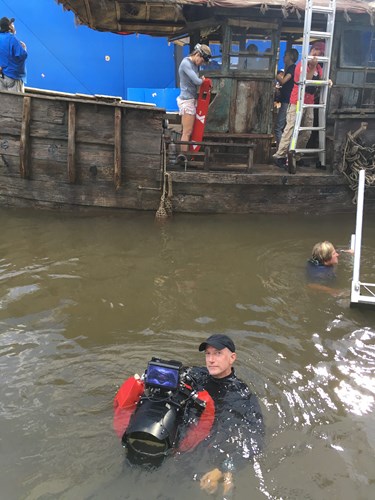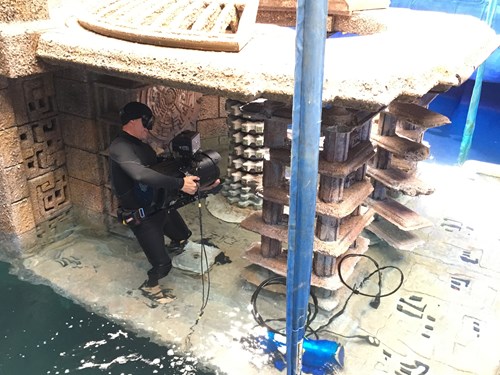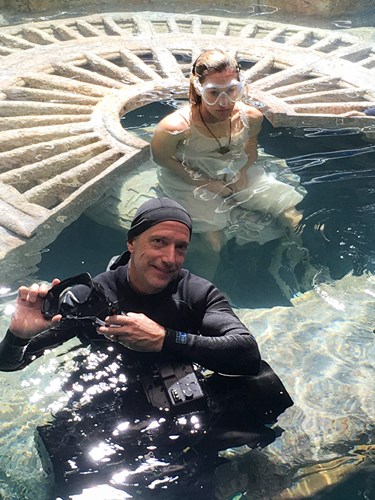
by: Jazz Tangcay, Variety
In a key sequence in Disney’s “Jungle Cruise,” Emily Blunt’s Lily Houghton and Dwayne Johnson’s skipper Frank have to dive off their boat to solve an underwater puzzle. Not only does Lily get trapped, but she ends up fighting for air as the drama unfolds.
Underwater director of photography Ian Seabrook stepped in to film Lily and skipper Frank as they seek the Tears of the Moon from a rare tree.

The sequence, Seabrook says, took just under two weeks to film. It required two water tanks at Blackhall Studios in Atlanta – one for the boat itself and another 177,000-gallon tank to shoot the underwater sequence.
“The sequence was shot in two bits – one where they jump into the water, and the camera is on the surface of the water. There was a techno-crane circling around them, and I stayed out of that shot,” Seabrook says.
The rest of the action required Johnson and Blunt to be underwater – but it wasn’t without challenges. “At the back of the tank, there was an intake valve at the very backend, I was told by the marine coordinator to stay away from it because the vacuum of that is so powerful, it will suck you underwater, so we stayed well away from there.”
Seabrook explains while Johnson and Blunt did a lot of the underwater sequences, including a moment where Frank is attacked by piranhas, stunt doubles were also used, purely for scheduling purposes. “We were shooting a lot of things concurrently with the main unit, and Emily and Dwayne are in almost every scene, so it was difficult to get them to come over and take that time.”
The puzzle pieces needed to click in a particular order, so it was Blunt’s stunt double Lauren Shaw who stepped in. “But Emily was spectacular in her underwater scenes. There was no regulator there for her,” he points out.

As the set rises, the camera needed to be in sync with it. Seabrook had initially thought about attaching the camera to the set, but that didn’t work once the lens was attached. “I said I would hold on to the camera. They lifted the set out with a crane – at the end of that sequence. Underwater, the camera in the housing has some weight to it, but when you lift that, that water pressure and weight became extreme,” Seabrook explains. He had to maintain the shot while holding the camera ready as the set rose, and endure the additional weight of the camera.
Seabrook explains to pull off his underwater cinematography, he needs not just to be in great shape, but still take a physical each year to provide audiences with spectacular underwater action.

Gear: Alexa SXT + in a housing special case